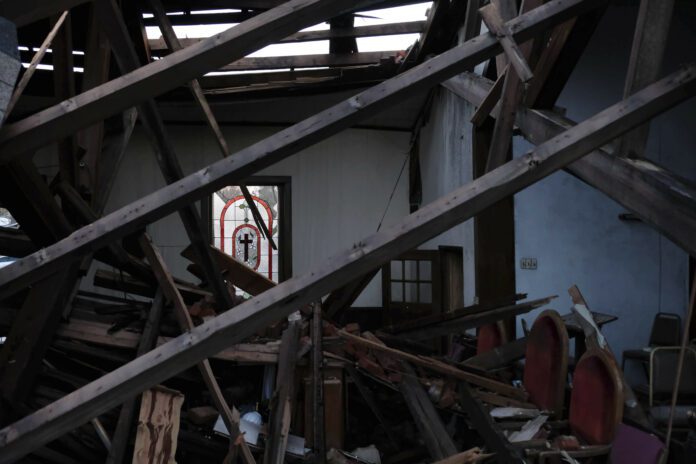Instead he envisions a more cost-efficient and workaday sanctuary for the future, noting that worshipers today are often content to attend services in run-of the-mill settings such as a metal building or gym.
“I doubt if we’ll ever have a building with a pipe organ in it again,” West said. “We were one generation away from not even having anyone who could play one.”
Leaders at the other three destroyed churches see things similarly.
The Rev. Joey Reed, who rode out the storm with his wife, Laurinda, in the basement at First Methodist, said that while he would love to see the original building restored, that will probably be too expensive. Instead, he said, it’s important for the church to devote its resources and energy to its core spiritual mission.
“Our mission is not to create or restore or maintain that historic architectural presence,” Reed said, “even though that is an important part of who we have been.”
Likewise, Don Barger, lay pastor of First Presbyterian, said his church must use its expected budget of $4.5 million to $5.5 million to design a building with the future in mind. That includes an opportunity to correct past oversights — the original structure lacked elevators and other accessibility features for people with disabilities.
“We’ve got to get away from our minds what the building looked like when it was built in 1914,” Barger said.
“We have become, at times, complacent,” he added. “When you’re having to start all over again, you can’t take anything for granted.”
The Rev. Leroy Brent, pastor for 33 years at Fairview Baptist, a predominantly Black congregation affiliated with the Southern Baptist Convention, recalled his shock at the devastation.
“I could stand on the steps that I would normally stand on every Sunday, and I didn’t know where I was,” he said. “There were no landmarks.”
But he’s optimistic about starting fresh due to the successes he’s seen in his background in church planting, or the seeding of new congregations.
“It gives you a completely new outlook,” Brent said.

